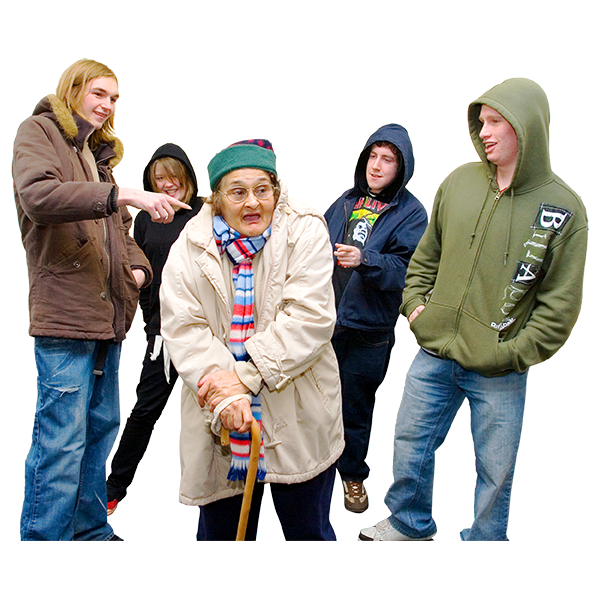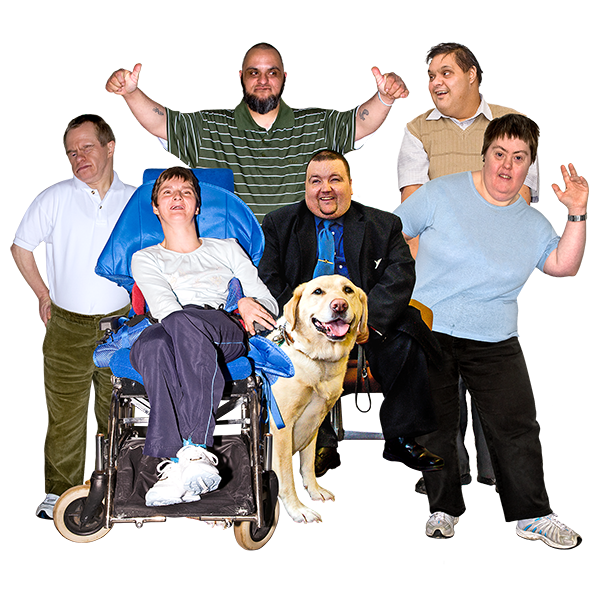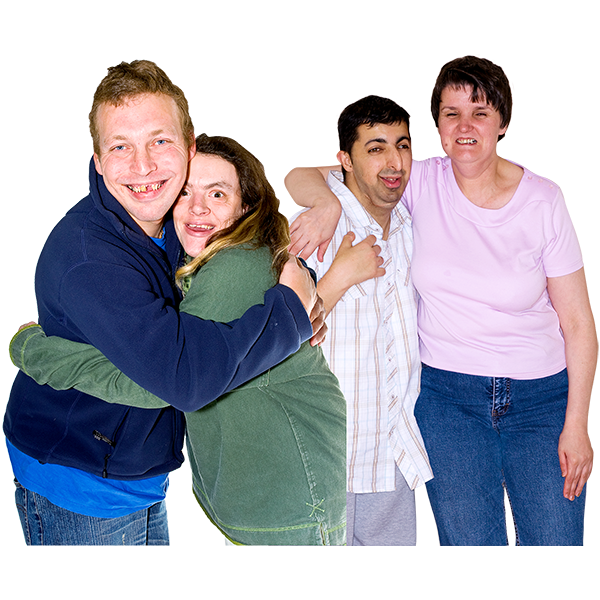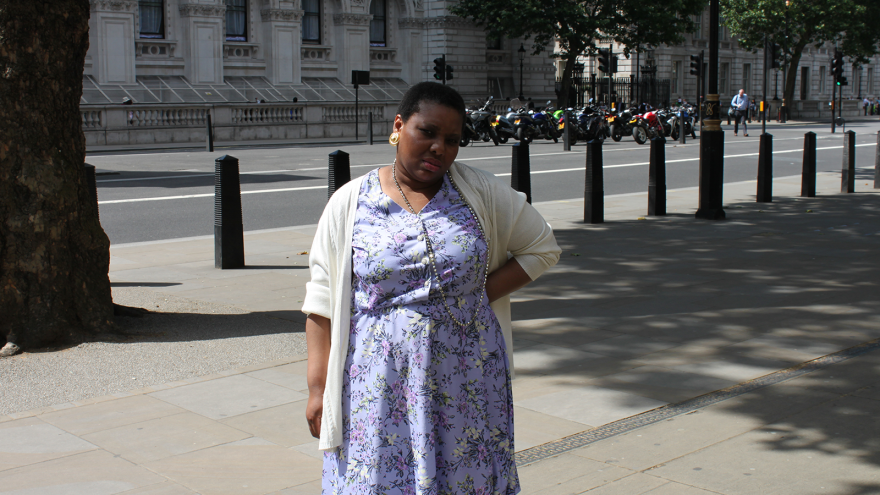Many of us have been bullied or know someone who has been bullied. It usually happens because we’re different - and it is never ok.
The important thing to know if you are worried about bullying is that you are not alone, and there is lots of support available to help you tackle it.
What is bullying?
Bullying is repeated negative behaviour done on purpose to hurt someone. Often a person or group targets another person or group to make them feel embarrassed, insecure or scared.
Bullying takes many forms, including name-calling, punching and online harassment. And bullying can happen to us at any age, not just in the playground. It can happen at work too. Bullying can take place anywhere - on buses, on the street, at clubs. And the experience can affect our mental health, self-esteem and even future job prospects.
If you are being bullied - or you think someone else is being bullied - you can speak to our friendly advisers for free on 0808 808 1111.
Causes of bullying
Firstly, no-one deserves to be bullied and it is never someone’s fault that they are being bullied.
People of all backgrounds and abilities can experience bullying behaviour, but when something sets us apart we are more at risk of being singled out as different, as someone to be picked on.
People with a
learning disability
 A learning disability is to do with the way someone's brain works. It makes it harder for someone to learn, understand or do things.
often experience bullying behaviour because we are seen as different. We may be picked on for things like:
A learning disability is to do with the way someone's brain works. It makes it harder for someone to learn, understand or do things.
often experience bullying behaviour because we are seen as different. We may be picked on for things like:
- speaking or moving differently
- showing emotion differently
- having specialist equipment and support.
Often people are singled out for no real reason at all other than to make someone feel more powerful than them. They might pick on someone who shows loud, excitable or even aggressive behaviour and who is easily provoked. They might try and get them into trouble. Or they might pick on someone for being meek and quiet, seen as an ‘easy target’ or easy to control.
We can also experience bullying behaviour for other reasons aside from disability - like race or sexual orientation. Being bullied because of disability, race or sexual orientation is
discrimination
 Discrimination is when someone is treated differently (usually in a bad way) because of things like their disability or their
religion
Discrimination is when someone is treated differently (usually in a bad way) because of things like their disability or their
religion
 Religion is to do with the things you believe about the world. For example you may believe there is a god or something else. Examples of religions are Christianity, Hinduism, Islam and Judaism.
.
and is against the
law
Religion is to do with the things you believe about the world. For example you may believe there is a god or something else. Examples of religions are Christianity, Hinduism, Islam and Judaism.
.
and is against the
law
 Laws are the rules that everyone in the country has to follow. If you don't follow the rules you can get in trouble with the police.
under the
Equality
Laws are the rules that everyone in the country has to follow. If you don't follow the rules you can get in trouble with the police.
under the
Equality
 Equality is when everyone is treated fairly.
Act 2010.
Equality is when everyone is treated fairly.
Act 2010.
- Read more about the differences between discrimination, bullying and harassment from Citizens Advice.
- Find out more about your rights in relation to discrimination.
- Find out more about mate crime and hate crime.
Types of bullying
There are lots of different types of bullying. We've listed some here to help you spot if this happens to you or someone you care about. All of them can be equally hurtful, and all of them deserve to be taken seriously.
Click on the different types of bullying below to find out more about each one:
Cyberbullying
Cyberbullying is when someone repeatedly sends you hurtful messages online or uses technology to upset you.
Online bullying behaviour includes:
- mean comments or messages online or on your phone
- pictures or videos of you being shared publicly online that you don’t want to be seen
- blackmail (pressuring you to do something by threatening to post things you don’t want to be seen)
- someone pretending to be you and posting things you didn’t want them to.
Social isolation
Social bullying, also called social isolation, happens when someone or a group of people leave someone out on purpose.
This includes:
- ignoring them
- stopping talking when they are around
- not inviting them to social events
- gossiping or talking negatively about them behind their back and trying to get others to join in.
- ruining their reputation
- damaging their personal or professional
relationships
 Relationships are about the people in your life. You might have different types of relationships like friendships, family relationships, or a boyfriend or girlfriend.
Relationships are about the people in your life. You might have different types of relationships like friendships, family relationships, or a boyfriend or girlfriend.
- embarrassing them in public
- encouraging others to avoid contacting them.
Physical bullying
Physical bullying is any form of unwanted physical contact towards you or your property.
This includes:
- pushing
- hitting
- kicking
- tripping
- unwanted kissing or touching
- stealing or breaking things
- being pressured or forced to give money.
Verbal and emotional bullying
Verbal bullying doesn’t leave a visible bruise, but can be just as harmful to us on the inside. This can include things like:
- name calling
- teasing
- threats
- mocking
- imitation
- intimidation
- stalking
- playing mind games and manipulating
- blackmailing.

Words I find offensive
"The next time I hear someone describe something annoying, upsetting, or otherwise negative as a ‘retard’ or ‘retarded’, I’m going to lose my shizz..."
The impact of bullying
Bullying can also impact all areas of a person’s life, such as their relationships with family and friends, or with their studies or work.
Being bullied can make someone feel less confident or scared. They might not want to spend time with friends and family, or even leave the house. If someone already has difficulty with socialising this can be especially true.
Bullying can have a serious impact on someone’s performance or attendance at school, college, work or clubs and groups. For example, if a child, young person or adult has difficulties with speech and communication, and is laughed at when they speak up in class, groups or work, they might not want to speak up next time. Similarly, if someone is repeatedly criticised for their work in an unconstructive and unfriendly way, that can seriously damage their confidence and motivation in school or work.
How someone might react to being bullied
Experiencing bullying is different for everyone, and we all react in different ways. Someone might feel alone, scared, hopeless or angry, because the way they are being treated is unfair.
When someone is being bullied, their behaviour may change and they may seem like a different person. This could include:
- being more quiet
- being aggressive
- negative attitude towards school or work and avoiding going in
- not taking part in social activities
- self-harming, eating disorders or other unhelpful ways of coping with painful feelings
- depression and anxiety
- changes in sleeping and eating patterns
- lower self-esteem.
The social and emotional issues caused by bullying can continue to affect a person’s life long after the bullying has stopped. It’s important to address these issues and get the right support for the person who has experienced this bullying behaviour.
The Learning Disability Helpline is our free help and advice line.
Our team can offer advice, information and discuss what support Mencap can offer tailored to your needs, in your area.
